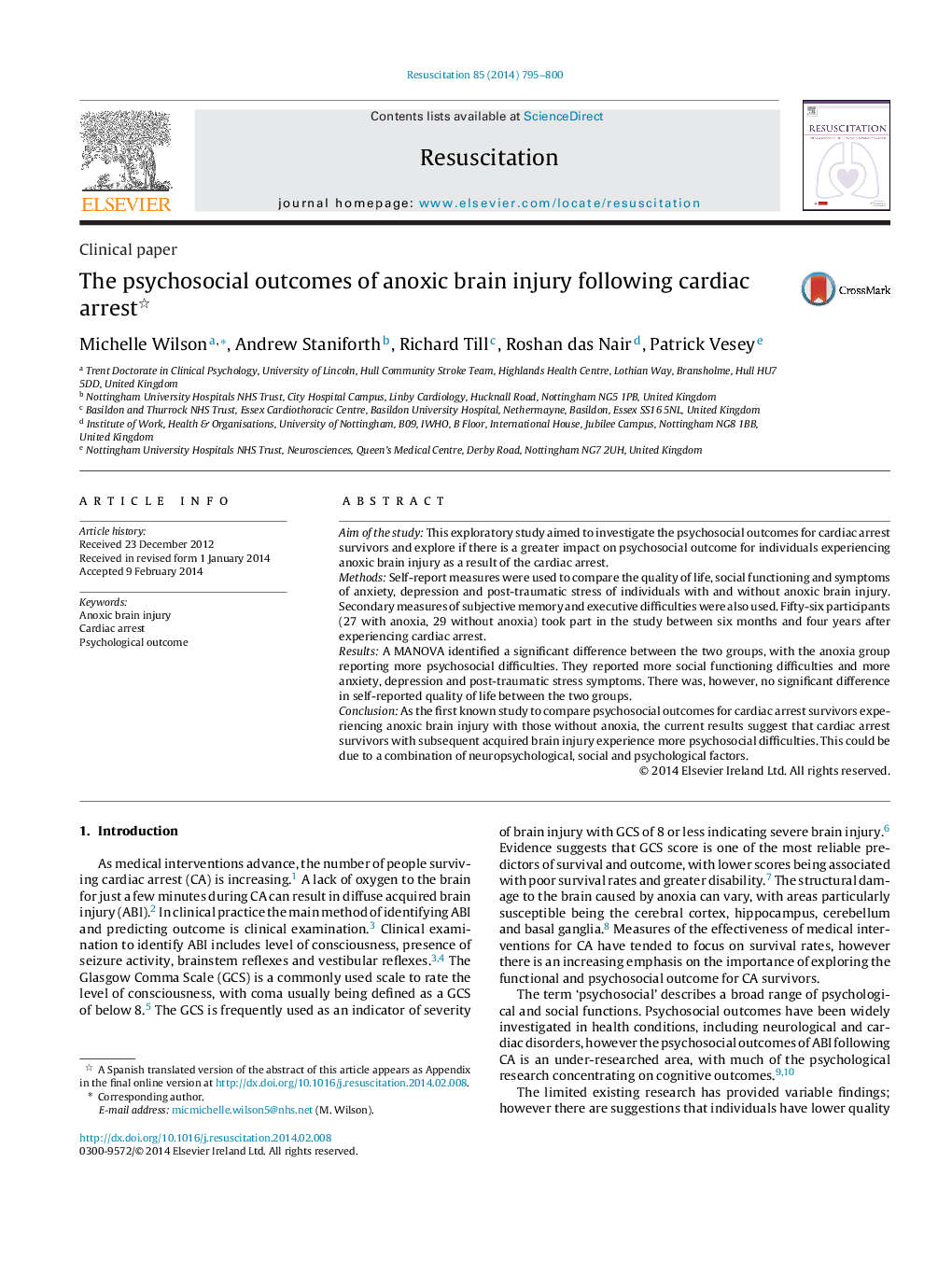| Article ID | Journal | Published Year | Pages | File Type |
|---|---|---|---|---|
| 5998630 | Resuscitation | 2014 | 6 Pages |
Aim of the studyThis exploratory study aimed to investigate the psychosocial outcomes for cardiac arrest survivors and explore if there is a greater impact on psychosocial outcome for individuals experiencing anoxic brain injury as a result of the cardiac arrest.MethodsSelf-report measures were used to compare the quality of life, social functioning and symptoms of anxiety, depression and post-traumatic stress of individuals with and without anoxic brain injury. Secondary measures of subjective memory and executive difficulties were also used. Fifty-six participants (27 with anoxia, 29 without anoxia) took part in the study between six months and four years after experiencing cardiac arrest.ResultsA MANOVA identified a significant difference between the two groups, with the anoxia group reporting more psychosocial difficulties. They reported more social functioning difficulties and more anxiety, depression and post-traumatic stress symptoms. There was, however, no significant difference in self-reported quality of life between the two groups.ConclusionAs the first known study to compare psychosocial outcomes for cardiac arrest survivors experiencing anoxic brain injury with those without anoxia, the current results suggest that cardiac arrest survivors with subsequent acquired brain injury experience more psychosocial difficulties. This could be due to a combination of neuropsychological, social and psychological factors.
